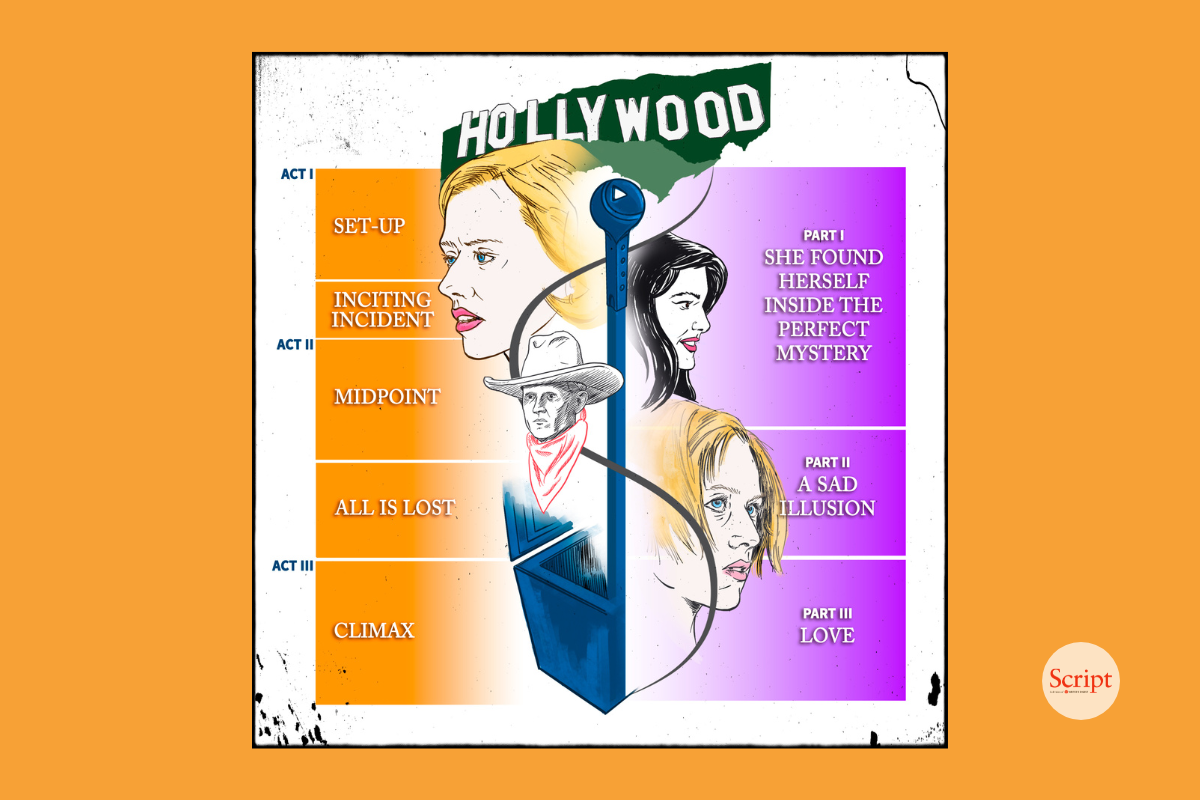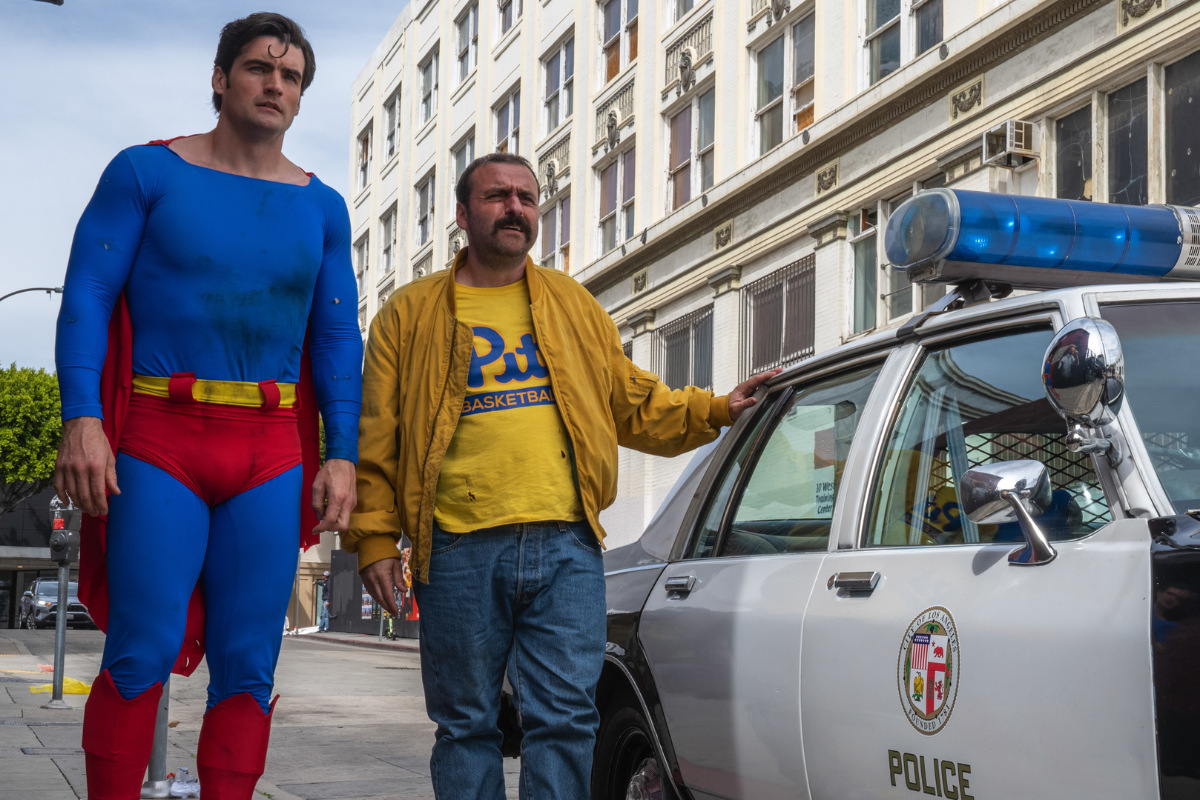Tribeca Film Festival 2025: Interview with ‘On a String’ Writer/Director/Star Isabel Hagen
Susan Kouguell chats with writer, director, producer, and star Isabel Hagen about her film debut, how she found stand-up comedy amidst her Julliard training in classical viola, and more.
It was a pleasure to speak with the multi-hyphenate Writer/Director/Producer/EP and Star Isabel Hagen about her first feature, On A String, during the Tribeca Festival.
As a classically trained violist myself, (but not Julliard-trained like Hagen) we shared many funny—OK, sometimes tragically funny stories of our musician experiences, but she’s a professional stand-up comedian and thankfully I am not—as well as the profound influence music has on our respective writing and filmmaking.
Isabel Hagen is a nationally touring stand-up comedian and classically trained violist based in New York City. As a stand-up, she has been featured twice on “The Tonight Show Starring Jimmy Fallon” and as a New Face of Comedy at the Just for Laughs festival in Montréal. Isabel started stand-up immediately after earning her bachelor’s and master’s degrees in viola performance from The Juilliard School. As a violist, she has played in the orchestra of many Broadway shows, and worked with artists such as Bjork, Max Richter, Japanese Breakfast, Steve Reich, and Vampire Weekend.
About On A String: Isabel (Isabel Hagen) is a young, Juilliard-trained violist still living at home with her parents in the heart of New York City. She’s trying to make a living playing gigs with her friends but when her toxic ex-boyfriend reappears, who also happens to be the Philharmonic's "newest, hottest cellist," he informs her of a viola opening in the prestigious orchestra. Nothing can go wrong, right?
Kouguell: Tell me about your decision to transition from music to filmmaking.
Hagen: It was a couple of things. Partly it was my deep love for stand-up comedy, and I had a repetitive stress injury in my hand from hours of daily practicing, so I had to take time off playing. I tried open mic, and I knew that it was something I wanted to explore. After graduating Juilliard, I did more stand-up. Writing for stand-up got the wheels turning to writing other things, and then I did the web series.
Kouguell: I watched your five-part web series is a violist, which is not only so funny, but it captures the lives of classical musicians with all their flaws, quirks, painful rejections, and honest realizations. Did you study screenwriting/writing and/or filmmaking?
Hagen: No. I learned by doing. It came out of doing stand-up comedy.
Kouguell: As the writer, director and star of this film, how did you approach the filmmaking process?
Hagen: There was a time I thought I'd bring in another director, but ultimately it was such a specific story, I felt that people had to have a deep understanding of this world. It felt right to direct it as a first feature.
Kouguell: You mentioned that it’s such a specific story, which it is, yet it feels universal.
Hagen: Sometimes the more specific you get—and in this film, about a classical musician navigating a specific world, which many might find unfamiliar—the universality aspect was important. That experience of following your dreams, accepting unexpected challenges and limitations, is something most of us feel.
Kouguell: How did your stand-up comedy evolve?
Hagen: Years ago, when my brother watched George Carlin on TV, I became interested. I marveled at it. When I had a little space in my schedule at Julliard, I tried it out. Initially it was never a goal to become a stand-up comedian.
Kouguell: Let’s discuss your writing process.
Hagen: It’s always driven by music. I start by latching onto a piece or a song or the essence of it. It will inspire a scene I want to capture. So much of this film, I was writing with music in mind, such as Schubert’s Death and the Maiden. I draw inspiration from music.
Both classical music and pop songs follow a strict form, and that’s what makes things interesting. I wanted this whole film to feel like a piece of music; recapitulations, incorporating certain motifs, the structure, and so on.
Kouguell: We’ve been talking about your role as the observer when performing as a violist at various events such as weddings. You mentioned that On A String is not about someone driven by a desire for success, but rather by a need for true connection to the world around her, with no idea how to find it.
Hagen: I always felt like an observer, which is not necessarily bad or good. I’m always watching how people talk and at certain times I wanted to mimic it. So much of comedy is observational and I realized a lot of work I did was the role of the observer like watching a narcissistic conductor and watching people how they behaved.
Kouguell: The film features live-captured musical performances, and the musician characters are almost entirely played by trained musicians, including your real-life brother, pianist Oliver Hagen, who portrays your character’s brother in the film. How was it to work with him?
Hagen: Working with Oliver was great. He’s not a trained actor but he is an accomplished musician who I have always looked up to.
Kouguell: What’s next for you?
Hagen: I’m continuing to tour as a standup and performing with the indie rock band Vampire Weekend, And working on new ideas for another film.
To learn more about Hagen’s projects visit her website.







